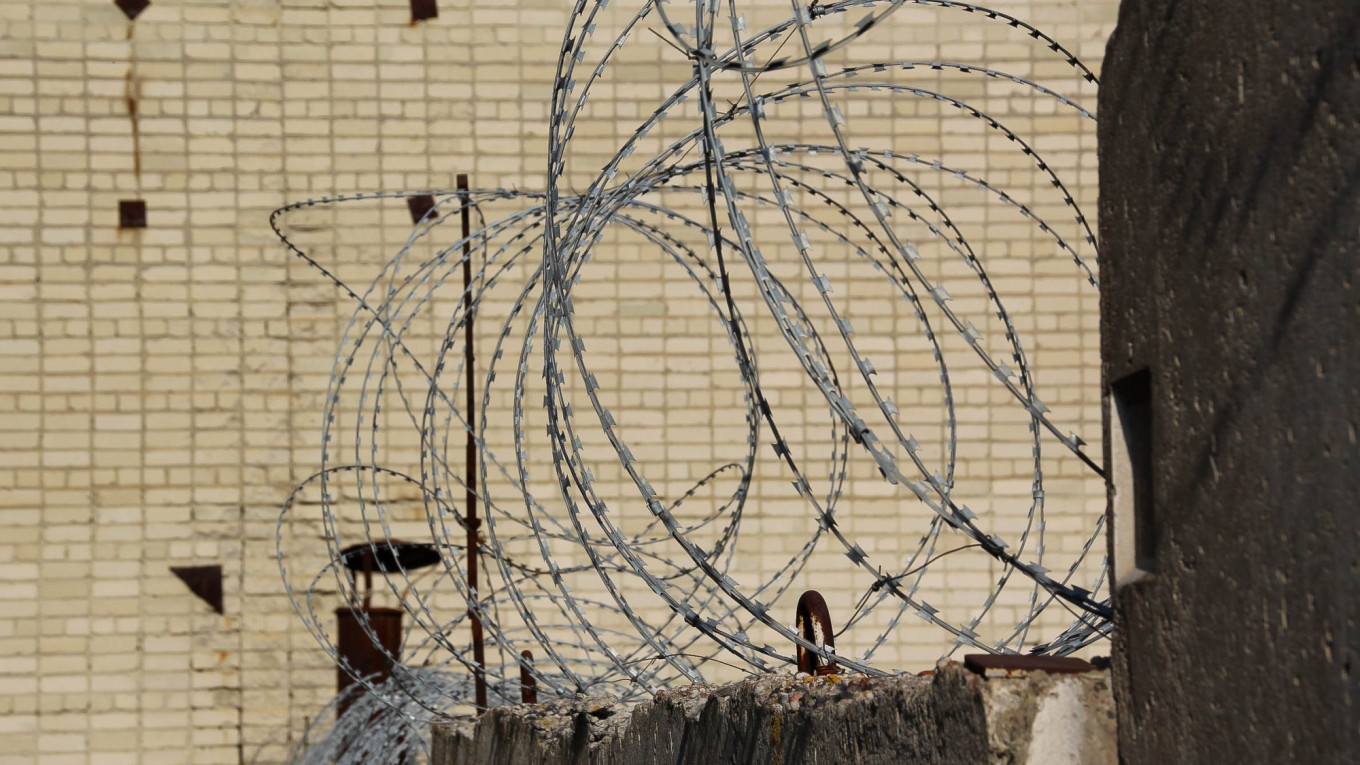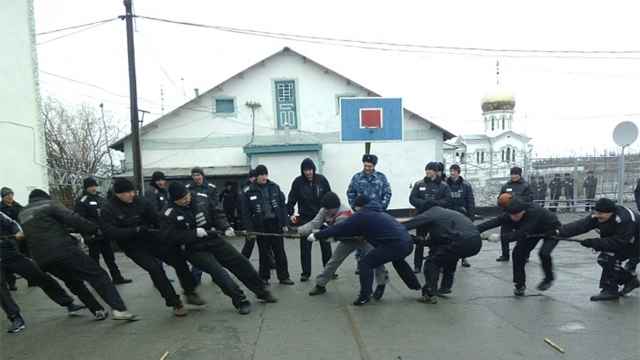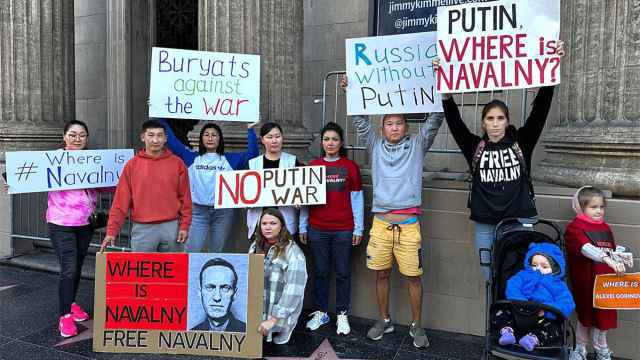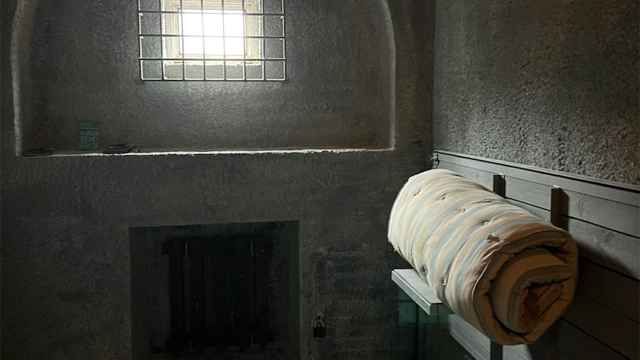The number of political prisoners in Russia has risen sharply this year in a trend that recalls late Soviet-era repression, Russia's leading rights group Memorial said on Wednesday.
It listed at least 420 political prisoners in Russia, including top Kremlin critic Alexei Navalny who survived a poisoning attempt with Novichok nerve agent last year.
That figure was up from 362, the group told reporters and activists in Moscow after a year that has seen an unprecedented crackdown on critical voices, including Navalny, who in February was sentenced to two-and-a-half years in prison on old embezzlement charges.
His political organizations were banned, while a number of independent media were designated "foreign agents."
"Unfortunately, the numbers have been steadily growing every year," said Sergei Davidis, head of a political prisoners' support program at Memorial, referring to attacks on rights.
"This is a sad and disturbing reality."
Davidis said Memorial's tally uses OSCE and Council of Europe guidelines to identify political prisoners but that the real number was thought to be "two or even three times higher."
"That's completely comparable to the figures of the Soviet era."
Soviet-era dissidents estimate that there were more than 700 political prisoners in the Soviet Union in 1987.
Dozens of prominent opposition figures have fled Russia following Navalny's imprisonment as authorities increasingly employ harsh tools to silence dissent including labeling journalists and media "foreign agents."
"We are returning to methods that were being practiced in the Soviet era," said Alexander Podrabinek, a Soviet-era dissident and journalist, referring to the use of the judiciary to punish dissenters and widespread claims of abuse and torture in prisons.
Memorial listed activists and religious minorities among Russia's political prisoners, with 68 members of the Jehovah's Witnesses – outlawed as "extremist" in Russia in 2017 – added this year.
Members of the U.S. Christian denomination have recently been handed increasingly long prison terms, and this week three were jailed for eight years.
Lev Ponomaryov, one of Russia's most respected rights activists, said the Jehovah's Witnesses had become targets of "mass repression" in Russia.
"They are being accused of praying the wrong way," said Ponomaryov.
A Message from The Moscow Times:
Dear readers,
We are facing unprecedented challenges. Russia's Prosecutor General's Office has designated The Moscow Times as an "undesirable" organization, criminalizing our work and putting our staff at risk of prosecution. This follows our earlier unjust labeling as a "foreign agent."
These actions are direct attempts to silence independent journalism in Russia. The authorities claim our work "discredits the decisions of the Russian leadership." We see things differently: we strive to provide accurate, unbiased reporting on Russia.
We, the journalists of The Moscow Times, refuse to be silenced. But to continue our work, we need your help.
Your support, no matter how small, makes a world of difference. If you can, please support us monthly starting from just $2. It's quick to set up, and every contribution makes a significant impact.
By supporting The Moscow Times, you're defending open, independent journalism in the face of repression. Thank you for standing with us.
Remind me later.






